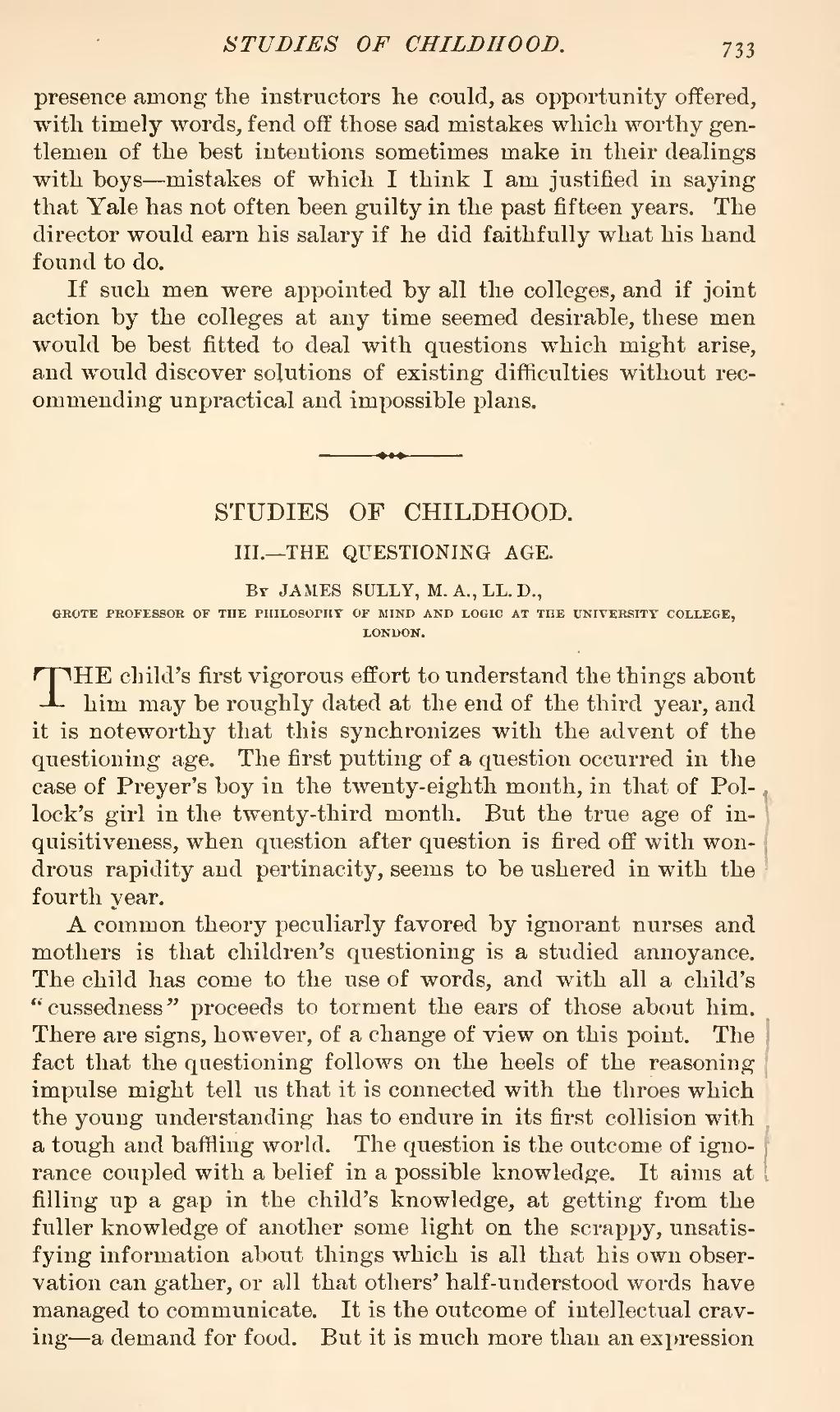presence among the instructors he could, as opportunity offered, with timely words, fend off those sad mistakes which worthy gentlemen of the best intentions sometimes make in their dealings with boys—mistakes of which I think I am justified in saying that Yale has not often been guilty in the past fifteen years. The director would earn his salary if he did faithfully what his hand found to do.
If such men were appointed by all the colleges, and if joint action by the colleges at any time seemed desirable, these men would be best fitted to deal with questions which might arise, and would discover solutions of existing difficulties without recommending unpractical and impossible plans.
| STUDIES OF CHILDHOOD. |
III.—THE QUESTIONING AGE.
By JAMES SULLY, M. A., LL. D.,
GROTE PROFESSOR OF THE PHILOSOPHY OF MIND AND LOGIC AT THE UNIVERSITY COLLEGE, LONDON.
THE child's first vigorous effort to understand the things about him may be roughly dated at the end of the third year, and it is noteworthy that this synchronizes with the advent of the questioning age. The first putting of a question occurred in the case of Preyer's boy in the twenty-eighth month, in that of Pollock's girl in the twenty-third month. But the true age of inquisitiveness, when question after question is fired off with wondrous rapidity and pertinacity, seems to be ushered in with the fourth year.
A common theory peculiarly favored by ignorant nurses and mothers is that children's questioning is a studied annoyance. The child has come to the use of words, and with all a child's "cussedness" proceeds to torment the ears of those about him. There are signs, however, of a change of view on this point. The fact that the questioning follows on the heels of the reasoning impulse might tell us that it is connected with the throes which the young understanding has to endure in its first collision with a tough and baffling world. The question is the outcome of ignorance coupled with a belief in a possible knowledge. It aims at filling up a gap in the child's knowledge, at getting from the fuller knowledge of another some light on the scrappy, unsatisfying information about things which is all that his own observation can gather, or all that others' half-understood words have managed to communicate. It is the outcome of intellectual craving—a demand for food. But it is much more than an expression

